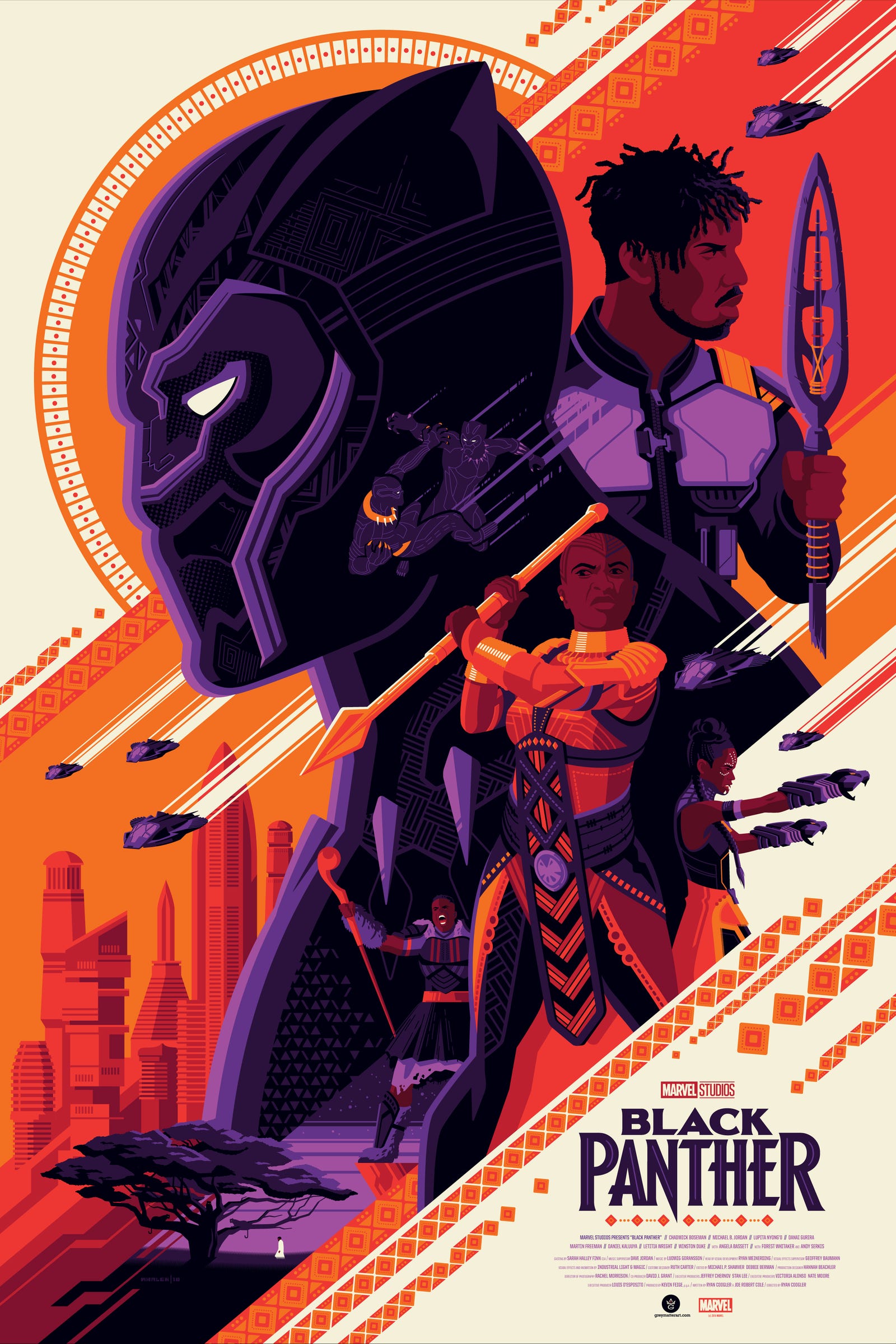

Black Panther, even more than The Dark Knight, elevates the comic book movie to a genre that's capable of actually saying something. The film's complex social commentary far exceeds any other installment in the wildly successful MCU while still managing to become the third highest-grossing movie of all time in North America and rack up $1.34 billion at the global box office.
T'Challa, who protects his people under the guise of the legendary Black Panther, finally returns home to the seemingly third-world African nation Wakanda as the heir apparent following the death of his father, King T'Chaka, in Civil War.
Meanwhile, T'Challa's American-born cousin, Erik Stevens, is on a collision course with the new monarch, steadily inching his way to his ancestral home with single-minded determination. After becoming a Navy SEAL and graduating from MIT, Stevens honed his skills as a warrior in Afghanistan and other hot spots around the globe, picking up the nickname "Killmonger" (a reference to his considerable body count) along the way. His military career also includes black-ops missions in which he helped to destabilize governments.
With assistance from black market arms dealer Ulysses Klaue (first seen in The Age of Ultron) and Tilda Johnson, Stevens uses his skills to steal (or liberate) two Wakanda artifacts from a London museum. One of the items, a weapon, is revealed to be made of vibranium - the same Wakandan material that comprises Black Panther's suit and Captain America's shield.
After murdering both of his accomplices, Stevens' makes his way to Wakanda, where he reveals his native name (N'Jadaka) and the fact that he's of royal blood (as the son of King T'Chaka's brother) and thereby eligible to challenge T'Challa's claim to the throne. Following his defeat of T'Chaka in ritual combat, N'Jadaka does indeed assume the Wakandan throne and announces his intention to distribute the country's advanced technology and weaponry (based mainly on vibranium) to the African diaspora across the globe so that the world's Black population can rise up against white regimes. T'Challa, beaten to within an inch of his life and presumed dead, and his loyal supporters initiate a Wakandan civil war in order to stop the new king from inciting an international race war.
The central conflict in Black Panther stems from the ideological differences between T'Chaka and Stevens. The former is a staunch isolationist who continues Wakanda's previous rulers' policy of disguising the advanced nation as a third-world country, in part so as not to share their priceless reserves of vibranium that not only powers Wakandan technology but also bestows enhanced abilities upon the Black Panther. Stevens, on the other hand, not only wants to reveal Wakanda's true nature, his lifelong dream has been to expand the kingdom into an empire that dominates the rest of the world as insurance against the subjugation of Black people. T'Challa also acts as a stand-in for Black Africans while Stevens represents African-Americans, whom he views as being abandoned, historically, by the former.
Fittingly for a story about Native Africans, the cast is almost entirely comprised of Black actors.
Black Panther marks the third collaboration (all critical and commercial smashes) between writer/director Ryan Coogler and co-star Michael B. Jordan, placing them among the ranks of legendary cinematic teams such as Martin Scorcese/Robert DeNiro, Spike Lee/Denzel Washington and Tim Burton/Johnny Depp. And with his scene-stealing turn in BP, Jordan proves that he's just as adept at portraying villains as he is heroes.
Originally Posted 12/21/18
No comments:
Post a Comment